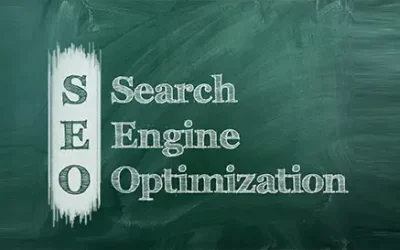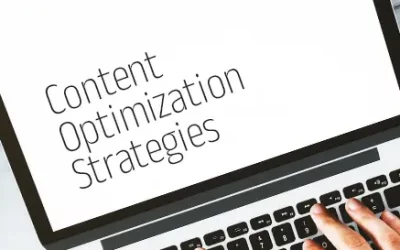Search Engine Optimization (SEO) has long been the cornerstone of any robust online marketing strategy, guiding how businesses attract and retain digital traffic. However, the rapid advancement of Artificial Intelligence (AI) is revolutionizing SEO, compelling marketers to rethink their strategies and adapt to new paradigms. Right from improving search accuracy to enhancing user experience, AI-driven search algorithms are transforming how information is retrieved and presented. This shift is particularly crucial for businesses relying on AI SEO strategies to stay ahead in an increasingly competitive online space.
This article delves into how AI is reshaping search algorithms and the implications for the future of SEO.
Artificial Intelligence (AI’s) Role in Shaping SEO
Artificial Intelligence (AI) use is becoming more and more prevalent across some industries, which also includes SEO. AI-powered algorithms, such as Google’s RankBrain, have significantly impacted SEO by enhancing search result accuracy and personalization, leading to a more complex yet rewarding SEO landscape. These algorithms use machine learning to comprehend user intent and offer more relevant search results.
There are more innovations to be unfolded in the AI platform as it can completely transform an organization’s processes. AI can process data faster and help SEO marketers improve their techniques. Using AI in SEO will help SEO experts analyze user behavior. It will help them enhance their content relevancy up to the evolving search engine algorithm trends that maximize exposure. AI algorithms essentially help search engines interpret and analyze context, which is important for accurately processing language.
How AI Is Changing SEO Practices
AI is playing a pivotal role in reshaping search engine optimization (SEO) strategies. Traditional SEO relied heavily on backlinks and keyword stuffing, but AI SEO emphasizes quality content, user engagement, and intent-based searches. AI helps transform SEO tactics that make businesses more competitive and are visible online in an increasingly AI-driven environment. Those who use AI efficiently can manage the complexity of online exposure as search engines emphasize experience.
Here is how AI is influencing SEO:
- AI-driven Keyword Research and Analysis: AI tools analyze vast amounts of data to identify the most relevant and high-performing keywords. Unlike traditional methods, AI-driven keyword research considers search intent, user behavior, and trending topics, making AI SEO services more effective in targeting the right audience. SEO experts can do predictive analysis using AI-driven keyword research to foresee trends and user search behavior. The machine learning algorithms check massive datasets to find important search information. AI plays a critical role in interpreting user intent and behavior for content strategy customization. All these enable AI to provide highly targeted relevant content that complies with search engine algorithms.
- Content Optimization: AI content marketing leverages tools like GPT-based models to generate high-quality, relevant, and SEO-friendly content. The advanced technologies of AI for SEO optimization use natural language processing algorithms to analyze text, which is essential for content improvement. These algorithms give semantic relevance, find suitable keywords, and make sure materials are in line with search engine algorithms. Moreover, AI-powered platforms analyze top-performing content and suggest improvements in structure, readability, and keyword integration, ensuring that content aligns with search engine algorithms. Businesses looking for the best AI tools for SEO optimization can leverage these platforms to enhance content quality and boost search rankings effectively.
- Personalized Search Results: The incorporation of open AI for SEO allows businesses to introduce customized and adaptable aspects in their website materials to transform user experiences. They can analyze the user’s past search history, location and personal preferences to adapt the content accordingly. This is crucial for businesses looking to optimize their AI SEO strategies for better engagement and conversion rates. The generative AI adapts to user behavior and provides results that improve overall experiences. In the big picture, this aspect of AI in SEO will promote consumer satisfaction and higher engagement.
- Improved Link Building: A building strategy involves acquiring hyperlinks from other websites to yours. A website with numerous high-quality links pointing to it is seen as more authoritative and tends to rank higher on SERPs. AI can help find relevant websites to acquire links from by using NLP. Lastly, AI can identify low-quality or spammy backlinks that could harm SEO efforts. AI-driven algorithms monitor and analyze backlinks performance to make an informed decision and have better link-building strategies.
- AI and Voice Search Optimization: When it comes to SEO, the significance of voice-activated digital companions has undeniably surged. With the rise of voice assistants like Google Assistant, Siri, and Alexa, voice search is becoming a significant factor in SEO. AI enables search engines to understand conversational queries and provide relevant responses. Curating content for voice search optimization requires a focus on natural language and long-tail keywords.
- AI-driven Technical SEO: AI significantly makes the technical SEO process more efficient and manageable. AI helps identify and resolve technical SEO issues such as site speed, Meta descriptions, URL structures, mobile-friendliness, and structured data implementation. AI-powered tools can scan websites for errors, suggest improvements, and automate tasks, making technical SEO more efficient and effective.
- Competitor Analysis: This involves analyzing what your competitors are doing and identifying their weaknesses. This allows businesses to tailor their SEO strategies to surpass the competition. Competitor analysis provides insights into the keywords your competitors rank for, their backlink sources, and their on-page SEO tactics. With the advent of Artificial Intelligence, conducting effective and thorough competitor analysis has become a more precise process. AI-powered tools scan and analyze competitor websites at an unprecedented scale and speed. These tools also identify gaps in your SEO strategy by benchmarking your website against your competitors.
Potential Challenges and Implications in the Use of AI in SEO
The integration of AI into search algorithms has profound implications for digital marketers. Adapting to these changes is crucial for maintaining and improving search rankings in an increasingly competitive online environment. Despite the vast opportunities for AI in SEO, there are certain challenges and implications in using it:
- Content Quality and Relevance: With AI prioritizing user intent and context, the emphasis on high-quality, relevant content is greater than ever. Digital marketers must invest in creating comprehensive, informative, and engaging content that addresses the needs and queries of their target audience. This involves conducting thorough keyword research, understanding user personas, and focusing on content that provides genuine value.
- Algorithm Biases: AI algorithms are effective and accurate as the data they are based on. It learns from the existing data and makes decisions based on patterns and correlations. Biases may come from flawed algorithms and improper implementation. If the training data contains bias, AI may perpetuate and amplify those biases when making decisions.
- Technical SEO and User Experience: A vital aspect in the AI-driven landscape, technical SEO ensures fast page load times, mobile-friendliness, and a secure browsing experience (HTTPS). Moreover, user experience (UX) design plays a critical role in retaining visitors and reducing bounce rates, which are factors AI algorithms consider when ranking pages.
- Data Privacy: AI relies heavily on data to function effectively. This raises concerns about data privacy and security. Businesses must ensure they are compliant with data protection regulations such as GDPR.
- Complexity: Building AI models for SEO can be complex and require many resources. Companies should invest strategically in talent and technological infrastructure to fully capitalize on the potential of AI in SEO.
Artificial Intelligence is revolutionizing search algorithms, making searches more intuitive, efficient, and user-centric. Businesses must adapt to AI SEO strategies and leverage AI content marketing to enhance visibility and engagement. AI SEO services provide innovative solutions to optimize search rankings and stay ahead of evolving digital trends.
By embracing AI-driven search optimization techniques, businesses can future-proof their SEO strategies and maximize their online presence in the ever-changing digital landscape. AI content marketing plays a vital role in this transformation by enabling businesses to produce high-quality, targeted content that aligns with user intent and search engine algorithms. From generating compelling blog posts to optimizing website content, AI-driven content marketing ensures that brands remain competitive and visible in search engine rankings. With AI-powered tools, businesses can analyze trends, automate content creation, and personalize marketing strategies to reach their target audience more effectively. Implementing AI content marketing in conjunction with AI SEO services allows businesses to build a strong online presence, improve engagement, and drive organic traffic.




